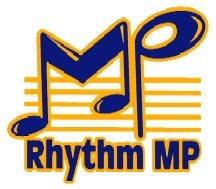Music plays an enormous part in our every day lives: a world without any music would be very difficult to imagine. Music can calm, excite and send tingles down our spines! It’s a universal language and most of us want to be part of it. It has been suggested by educational psychologists that the study of music can also stimulate academic achievement in children and improve motivation in many areas of education. I believe profoundly that everyone is born with some kind of musical intelligence and is capable of undertaking some form of musical activity.
The first musical experience
Very young children are unlikely to be playing musical instruments, but there may be classes in your area offering other enjoyable musical activities. It is important to develop a child’s sense of rhythm through movement, dancing and singing as early as possible. If a child is showing an interest in music such classes can be of enormous benefit.
But don’t expect too much too soon
Allow your child to have some fun. Take him/her to concerts and musicals - listening to live music is a marvellous introduction. If they are well-run and stimulating, educational workshops and courses can also play a vital role in allowing a child to discover their musical potential. Making music as part of a group, a feature of a good workshop, will allow a child to take part in what might be a first real musical experience. Hopefully they will finish the experience feeling confident, happy and wanting more!
When to begin?
This is a question I am often asked by anxious parents. After many years of teaching I have come to the conclusion that starting at seven or eight, for the average child, is ideal. Children of this age are generally eager to please and appear to have very good memories. They can take a challenge and are always willing to ‘have a go’. This is the time when you can lay a firm foundation and encourage musical development. But there will, of course, be lots of exceptions. If your child is desperate to begin earlier then encourage them, but be careful: a child starting individual lessons at three or four can ‘burn out’ and lose interest a few years later. Have realistic expectations: remember that, in most cases, it is unlikely that your child will turn out to be a musical genius, willingly putting in several hours of practice a day!
The recipe for success
- A teacher who makes the lesson stimulating and introduces repertoire the pupil wants to play
- A student who is willingly doing certain amounts (not necessarily hours) of regular practice (without any threats from frustrated parents!)
- A teacher who forms a good working relationship with the pupil in the early stages and does not expect
- unreasonably rapid progress
- The best possible instrument the parents can afford - playing on a piano with missing notes is really frustrating!
The warning signs
When practising becomes a chore and general enthusiasm seems to be low there is usually an explanation:
- Sometimes the child just doesn’t see eye-to-eye with the teacher and is too embarrassed to say anything
- It could be, in the more difficult teenage years, that it’s just ‘not cool’ to play an instrument, and peer pressure is too great
- Maybe the child is doing far too many others activities
- It could be worth trying a different instrument
- Whatever the problem try to discuss it with both the teacher and the child
Playing in groups
There is no doubt in my mind that playing or singing music in groups is of enormous benefit to the development of a child’s social skills. Children should always be encouraged to take part in a group music session as soon as possible - even when they can play only a few notes. In my last teaching post I encouraged any child who could recognise and play five notes to join my little orchestra. The group developed quickly and within just a few weeks anyone listening to a rehearsal would be able to ‘spot the tune’. It is amazing how rapidly children progress once they are motivated and are enjoying their instrument.
Parental contribution
Over the years some of my fondest memories are of playing in bands and orchestras. I will always thank my parents - both from a completely non-musical background - for the help and encouragement they gave me as a child. Parents will also benefit from their children’s interest. Some are even inspired to take up an instrument themselves: at the age of sixty my mother took up the piano and is now an accomplished pianist! As concentration levels in most young children are limited, parents with some musical ability can really help by being encouraging during practice periods or by simply always being willing to listen!
Learning to play an instrument is an extraordinarily fulfilling activity. The musical education of a child provides experience for life and can be hugely enjoyable and rewarding for both child and parent. If you can give your child the opportunity to play an instrument and help them to nurture this skill, you will have enriched their lives forever.
♫♫♫♫♫♫♫♫♫♫♫♫♫♫♫♫♫♫♫♫♫♫♫♫♫♫♫♫♫♫♫♫♫♫♫♫♫♫♫♫♫
This article "Music For Life" was published in the January 2002 No.37 issue of "Rhythms" a music bulletin.




.jpg)